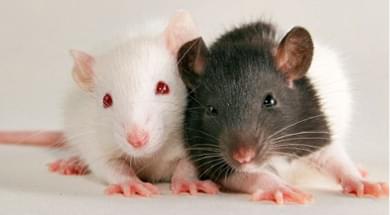All products and services are For Research Use Only and CANNOT be used in the treatment or diagnosis of disease.
With excellent history in animal model construction and profound expertise in genetic T cell engineering field, Creative Biolabs now provides customized animal experiments service for the in vivo function and safety evaluation of T-cell receptor (TCR) gene transfer therapy. According to the clients' requirements and the characteristic of a given TCR, our experienced scientists can design and perform a series of in vivo assay to evaluate the preliminary efficacy and toxicity of the engineered T cells equipped with a TCR of defined virus- or tumor-antigen specificity within a competitive timeline. Based on our advanced animal experiment service platforms, Creative Biolabs has come to the unique position to not only have the technology and experience necessary for the comprehensive in vivo assessment of your antigen-specific TCR, but also the capability to provide these animal experiment services in the most cost and time efficient manner.

TCR gene transfer therapy, also known as Antigen-specific T cell therapy, is a promising immunotherapy for a variety of cancers and infectious diseases. In this immunotherapy strategy, autologous or donor-derived T lymphocyte populations would be equipped with a TCR of defined specificity in short term ex vivo cultures, and re-infusion of the redirected T cells would be used to supply T-cell reactivity against defined antigens. In detail, the TCR used to modify the T lymphocytes can be isolated from a T cell clone that expresses the TCR with high affinity for the target or just be generated by recombinant technology. Once the target TCR has been obtained, molecular cloning is employed to identify and isolate the TCR α and TCR β chains to generate the TCR α and TCR β gene sequences,which are then used to generate an expression construct that ideally promotes stable, high-level expression of both TCR chains in human T cells.
The availability of multiple animal models from rodents to non-human primates (NHP) combined with state-of-the-art instruments and methodologies, allows Creative Biolabs to offer customers a top-quality animal experiment service. At Creative Biolabs, various animal models can be generated to help you have a comprehensive understanding of your specific genetically modified TCR. For TCR gene transfer therapy targeting human autoimmune diseases,we can induce experimental organ-specific autoimmune diseases in animals by immunization with organ-specific autoantigens to construct an appropriate model, for example, experimental autoimmune encephalomyelitis (EAE) is a well-established animal model which reproduces many of the neuropathological and immunological characteristics of multiple sclerosis. For the study of tumor-specific TCR, Creative Biolabs provides multiple animal models of cancer which include transplanted models of cancer, Carcinogen- induced of cancer, Germline-genetically engineered mouse (GEM) models of cancer, Conditional-genetically engineered mouse (GEM) models of cancer. In addition, animal models of virus-infection diseases are also available.
To discuss your demands or to request a proposal, please contact us by .
For any technical issues or product/service related questions, please leave your information below. Our team will contact you soon.
 NEWSLETTER
NEWSLETTER
The latest newsletter to introduce the latest breaking information, our site updates, field and other scientific news, important events, and insights from industry leaders
LEARN MORE NEWSLETTER NEW SOLUTION
NEW SOLUTION
CellRapeutics™ In Vivo Cell Engineering: One-stop in vivo T/B/NK cell and macrophage engineering services covering vectors construction to function verification.
LEARN MORE SOLUTION NOVEL TECHNOLOGY
NOVEL TECHNOLOGY
Silence™ CAR-T Cell: A novel platform to enhance CAR-T cell immunotherapy by combining RNAi technology to suppress genes that may impede CAR functionality.
LEARN MORE NOVEL TECHNOLOGY NEW SOLUTION
NEW SOLUTION
Canine CAR-T Therapy Development: From early target discovery, CAR design and construction, cell culture, and transfection, to in vitro and in vivo function validation.
LEARN MORE SOLUTION